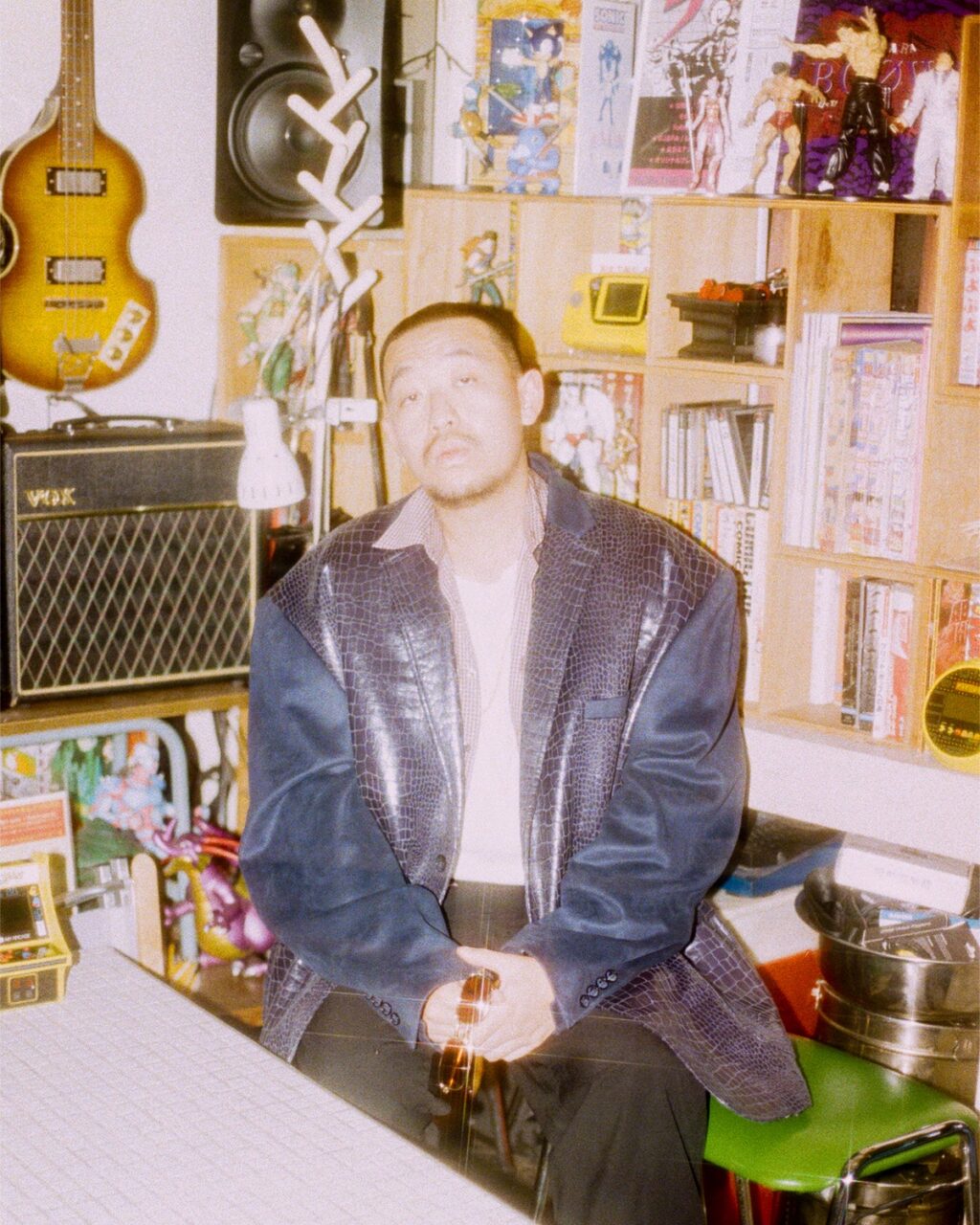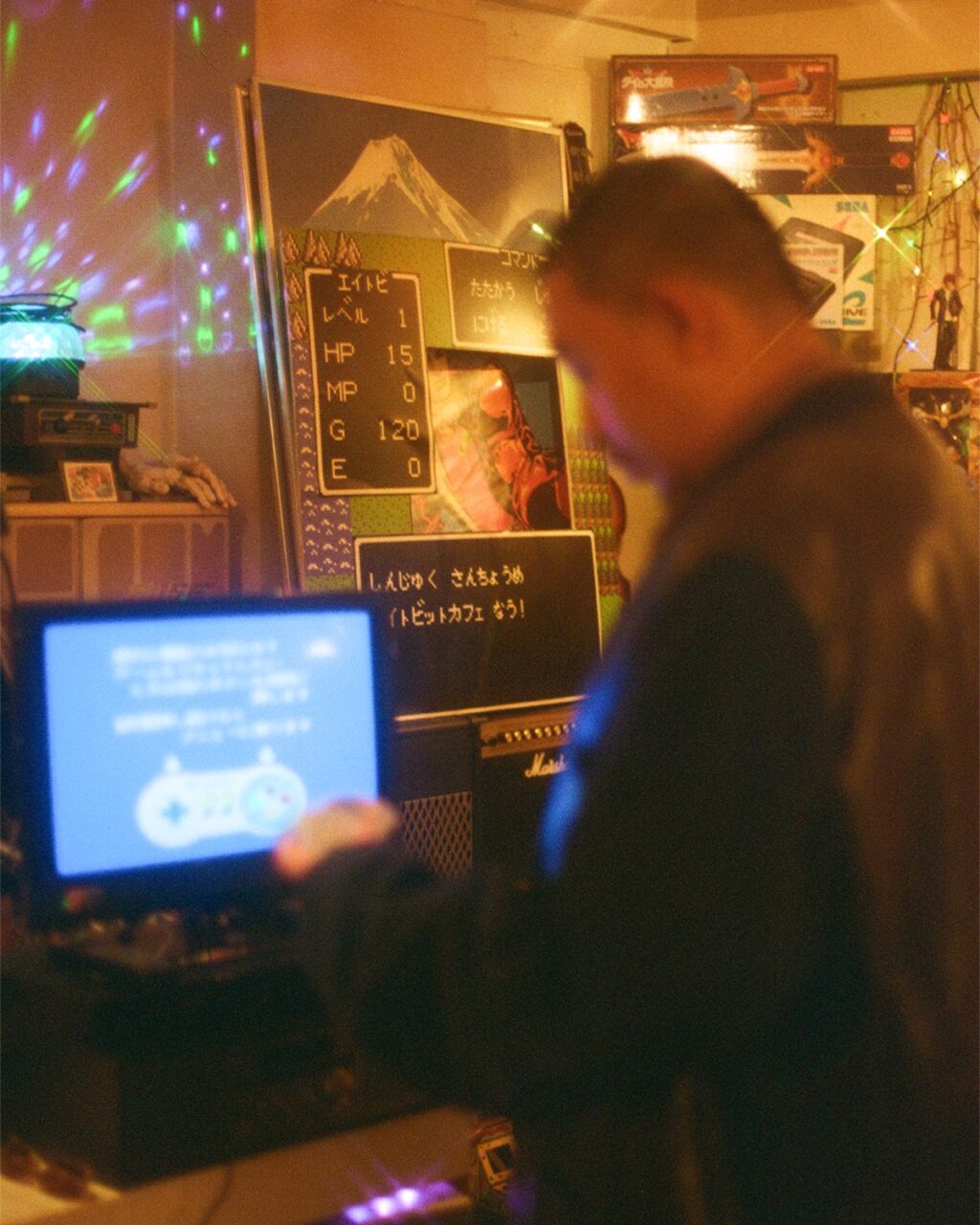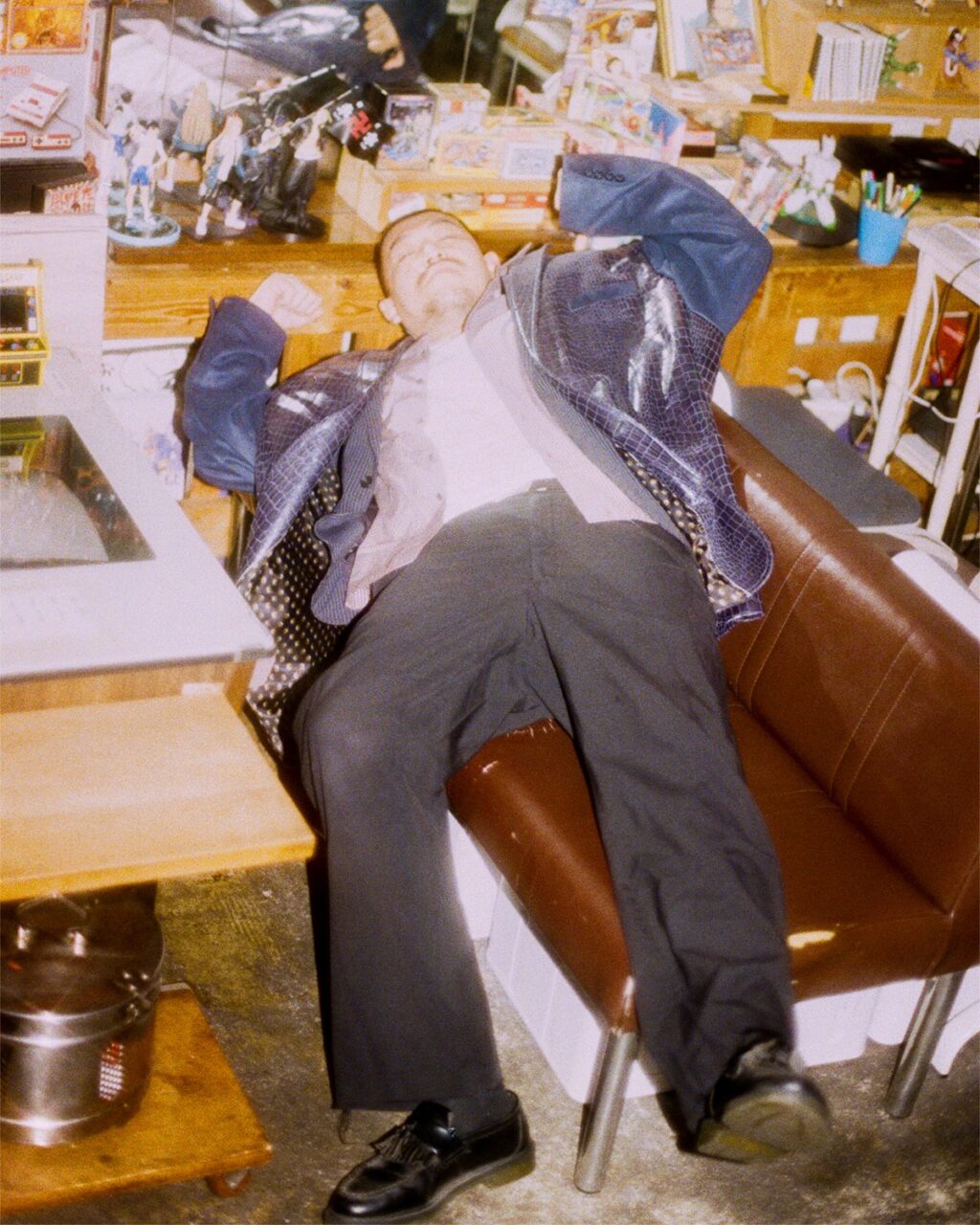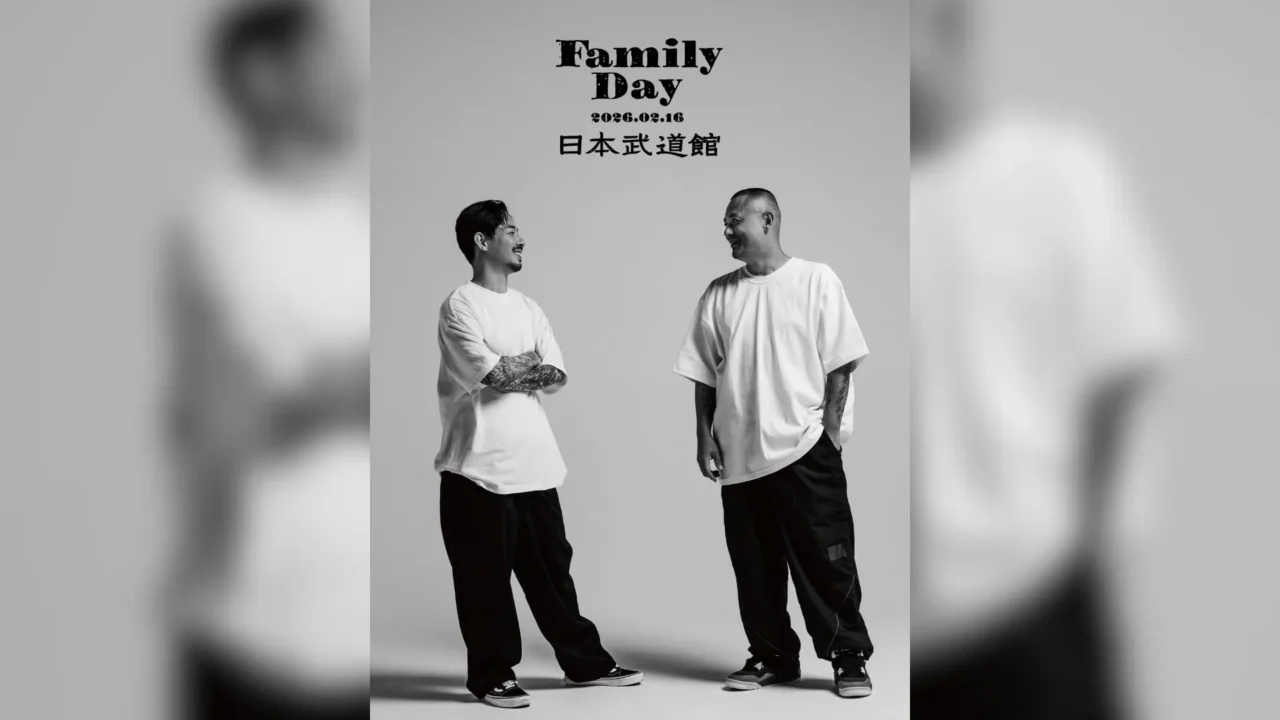Kuma Overdose, a modern-day bard, moves seamlessly between LA, London, and Tokyo as his creative hubs. An Asian-American artist, Kuma crafts captivating melodies that are both soothing and addictively powerful, each carrying a strong message. This journey explores the beauty of the East through Western eyes and the unique perspectives of the West through an Eastern lens.
A Mirror to a World Overdosing on Modern Excess
The name Kuma Overdose carries a meaning that reflects modern society, where those unfamiliar with certain events may not notice or question the underlying discomfort. Today, the world is overflowing with content, and people consume, absorb, and are overwhelmed by it daily. It’s not just alcohol or drugs—people are unconsciously overdosing on Instagram Reels, TikTok, overstimulating cities, crowded markets, and an excess of information of all kinds. That’s why I chose the name “Overdose”—to highlight how we are all over-consuming something every single day. As for “Kuma,” it comes from a nickname derived from my real name, “Barry,” which sounds similar to “bear” in English, and was adapted into Japanese as “Kuma.”

An artist and producer hailing from Los Angeles, Kuma Overdose crafts dreamy tracks that evoke the spirit of ’90s Japanese city pop, jazz, and old-school hip-hop. Writing, composing, and producing his own music, his song “Bike Lane” has surpassed 2 million streams on Spotify. The track has been featured in Wonderland magazine and numerous other publications, garnering attention not only in the West but also across Asia. Since relocating to London in 2020, Kuma has collaborated with UK hip-hop artist Lord Apex, as well as JNR CHOI, Bktherula, and Rico Nasty.
It All Began with Jazz Learned During My Formative Years
I started learning jazz piano and trumpet when I was 10 years old, and that was the beginning of my deep dive into music. While I often improvised during jazz performances, improvisation isn’t the same as composing, so I eventually wanted to try writing my own music. I began by composing sheet music for jazz piano and later added words to create lyrics. At 19, I wrote my first song. Honestly, it wasn’t very good, so I doubt anyone but me will ever hear it [laughs].
Music as a Tool to Balance My Shy Personality
I’m naturally more introverted, so I’ve never been great at expressing myself through spoken words. I rarely meet with large groups of people unless I’m performing or attending a concert. Even during concerts, I don’t have to face any one person directly, so it feels less overwhelming for me. Music has become a way to balance and compensate for my shyness. Rather than romanticizing life in my songs, I share the details and small moments of it through my music.

Two People Who Inspired Me
There are two people who have greatly influenced my life. One is my friend Hansen, a chef who taught me that music, like food, is a form of art. Around 2014, he decided to take his hobby of cooking seriously and became a full-time chef. We have always pushed each other to grow, constantly motivating one another and working hard together.
The other is Kunimoto Takaharu, a jazz pianist who plays at a small bar in Fukuoka. He’s a friend of my friend’s father. He took me to a bar where there’s room for about ten people, run by him and his wife. I believe he’s the best jazz pianist I’ve ever seen in person. I wanted to learn jazz from him, but he wasn’t taking students. So, whenever I visited Fukuoka, I went to his bar every day. Eventually, he started offering me a little bit of advice.
Every Experience Shapes Who You Are
I’ve gone through punk rock, techno, hip-hop, and jazz. Many people might have had similar experiences, combining the elements they like from each genre to eventually create their own unique style. When creating something, I think it’s important to be true to yourself, so I always make sure to create what feels authentic to me.
The Event I Organized Changed the Management Policy of a 5-Star Hotel
When I DJ, I feel like a completely different person than when I’m singing. For me, DJing is all about providing a fun time for everyone on the party floor. I once collaborated with “The Labstore,” a high-end apparel shop in London, and threw a party in the lobby of a 5-star hotel. The hotel staff asked us to “turn the volume down” and “make it more elegant,” but we said, “We can’t do that.” Instead, we created a mosh pit with 200 invited guests and danced. As a result, some of the lobby furniture was even damaged, but the party became wild and unforgettable. The hotel staff forgave us and suggested that we do a similar event again. After that party, the hotel reassessed its branding and made the hotel more accessible to a wider range of people.
Unexpected Move from LA to London
London feels very friendly, with a community that’s open and welcoming. It’s a place where various cultures and ethnicities blend together, and there’s a sense of readiness to accept and learn from different cultures. My first trip to London was around 2018 or 2019, just about a year before the pandemic. At that time, I decided to take music seriously, and strangely enough, a London-based label reached out to me. Honestly, I was puzzled as to why they contacted me out of the blue. I immediately sent my music and music videos to the label, and went to London to check things out in person. What started as a scouting trip from LA to London turned into a four-year stay. Many of my creative friends were in London, and I was able to find my niche, which made it an incredibly enjoyable experience.
Explosive Growth of London’s Underground Scene
Shortly after, an unexpected lockdown due to the pandemic was implemented, not just in London but around the world. Despite the restrictions on personal connections, we were desperately trying to maintain connections with others both online and offline. London’s underground scene became a place where people gathered, and events were being held, serving as a sort of emotional refuge. After the pandemic eased, the mentality was like “today could be the last day,” and the London party scene exploded. The underground scene no longer remained just underground but expanded in a positive way, allowing more people to access the community. As various genres and communities began to intersect, it was clear that subcultures had become more energetic than ever before. The past few years of limited creative freedom and restricted connections due to the pandemic gave rise to a rebellious spirit. Now, as the community continues to expand, I hope London’s underground scene becomes even more accessible to a larger audience.

Conveying the Beauty of Asian Culture to the West
Entering the 21st century, the environment for voicing concerns has greatly improved, leading to a significant reduction in racism worldwide compared to the past, though it has not been completely eradicated. Asians are a minority in the West, and there are times when their priorities are downgraded because of their race. However, in recent years, there has been a major shift in America, with Asians, Asian Americans, and Asian Britons appearing on the big screen, winning prestigious awards, and making waves in the media.
I believe that the stereotypical Western notion that “Asians only work with other Asians” limits creativity and restricts interaction with other communities. This is why I always strive to involve people from various countries in my activities. I want to share the beauty of Asian culture with the West and make people aware that there is also beautiful culture within Asian communities in the West, including Asian Americans, Asian Britons, and others. By breaking down racial barriers and interacting with different people, I hope to connect both cultures.

“Quality” or “Ideas”
In Japan, there is a deep-rooted commitment to craftsmanship and aesthetic sensibility, which I believe is reflected in music and art as well. For instance, Japanese craftsmanship tends to focus on creating “perfect and long-lasting items.” Whether it’s furniture, music, or food, there is a strong emphasis on “completeness” and “attention to detail.” Music, too, is not just created randomly, but is often carefully thought out and developed. The tendency to aim for “perfection” can sometimes suppress creativity, however. This is particularly evident in Japanese jazz, funk, and classical music, where precision and completion are outstanding, but freedom of thought and individuality may be restricted, leading to a tendency to follow rules and forms.
In contrast, Western culture, especially in places like the UK, places a high value on punk and free culture. The focus is on the generation of ideas—if a concept is interesting, it becomes a driving force to materialize it, often prioritizing energy and innovation over “quality” or “completion.” The results can be unpredictable, for better or for worse. For example, music like Pink Pantheress’s may have many fresh and cool ideas, but the recordings or finish might not be perfect. However, it’s precisely because of the interesting ideas that the rawness of the music becomes part of its charm. There is a strong desire to express emotions immediately, which is reflected in music and art.
There is no definitive answer to which approach is “better,” as both have their merits, and artists may choose different paths based on their own preferences. The precision of Japanese music and the freedom of British culture are both captivating, with constant new discoveries in each.
The Anonymity of Music in the Japanese Language
When I first became interested in music, I was greatly influenced by Japanese instrumental music and Yellow Magic Orchestra. Their use of synthesizers and sound creation techniques were remarkable, and I incorporated many of these elements into my own music.
Songs like “Bike Lane” and “Lofty. (Down)” were created by sampling lines from my favorite Japanese films and weaving them into the lyrics in a way that felt natural. I find the Japanese language to be incredibly expressive. The choice of tone and dynamics (expressions of sound intensity) in Japanese is also fascinating. Each character has its own distinct pronunciation, and there’s a rhythm to it. This aligns well with my music, and it feels like it naturally complements and links with it.
In Japan, where attention to “detail” is highly valued, I moved to Tokyo to create better music. As I work between Tokyo and London, I hope to collaborate with experimental Japanese artists in the near future to create music together.

Details Filled with Passion Are My Favorite
I feel a deep sense of happiness when I come across any work that is packed with attention to detail. I love catching glimpses of the artist’s craftsmanship and discovering hidden details. Moving forward, I hope to continue refining my musical skills while creating albums and songs that resonate with people around the world.
Never Afraid of Change
Right now, I am working on several projects, but if I had to pick the most exciting, it would be the release of my EP and album production. The track “ALPHARD,” which is planned for this EP, truly reflects who I am at this moment. Before releasing the EP, I plan to drop two more singles. I feel lucky to have worked on this with people I deeply respect, with great attention to every detail. During the production of this EP, my style has undergone significant changes, and there might be some people who loved my previous music but may not like this new direction. However, I’m genuinely curious to see how people will react to this change. In the end, I won’t know until it’s released, which makes it even more exciting.
























